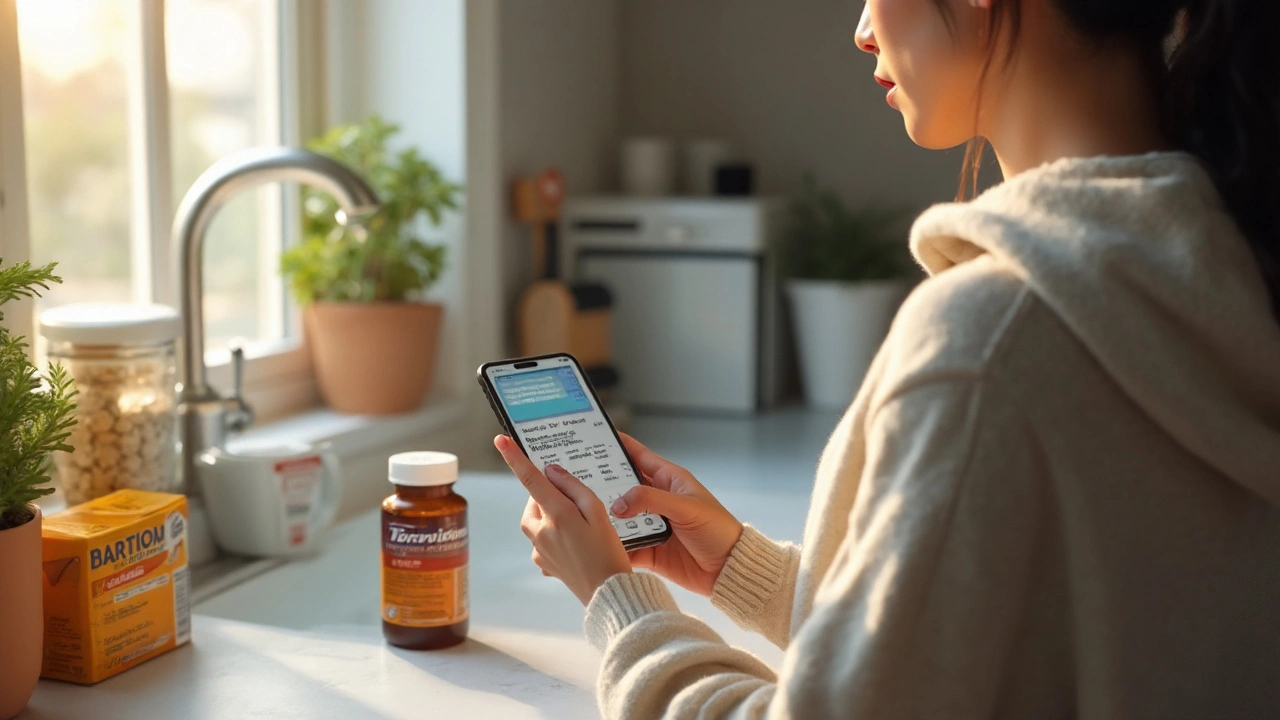
Anacin (Aspirin + Caffeine): Uses, Dosage, Side Effects, and Safer Alternatives
Clear guide to Anacin: what it is, how it works, dosing, safety warnings, and when to pick alternatives like Tylenol or ibuprofen. Straightforward, 2025-ready.
If you’ve ever taken a headache pill that lists aspirin and caffeine together, you’ve used a combination that’s been around for decades. The idea is simple: aspirin eases pain and reduces inflammation, while caffeine tightens up blood vessels and gives you a little energy lift. The result is fast‑acting relief for things like tension headaches, migraines, and minor aches.
Aspirin belongs to the NSAID family. It blocks the enzyme COX‑1 and COX‑2, which slows down the production of prostaglandins—those chemicals that cause pain, swelling, and fever. Caffeine, on the other hand, is a stimulant that narrows blood vessels in the brain. By doing that, it reduces the throbbing feeling that often comes with a headache. It also speeds up how quickly aspirin gets absorbed, so you feel better sooner.
Because caffeine can make you feel more alert, the combo is popular for people who need to stay productive while a headache hits. It’s also why some over‑the‑counter brands market their pills as “fast‑acting” or “focused relief.”
Even though the aspirin caffeine combo is safe for most adults, there are a few things to watch out for. First, the usual aspirin warnings apply: avoid it if you have a stomach ulcer, bleeding disorder, or are allergic to NSAIDs. Taking it on an empty stomach can irritate your gut, so a light snack helps.
Caffeine adds its own set of alerts. If you’re sensitive to caffeine, you might feel jittery, have a fast heartbeat, or notice trouble sleeping. The typical dose in a combined tablet is about 65 mg of caffeine—roughly half a regular cup of coffee. If you already drink coffee, tea, or energy drinks, count that caffeine toward your daily total.
Mixing aspirin caffeine with other medicines requires caution. Blood thinners (like warfarin), certain antidepressants, and other NSAIDs can increase bleeding risk. Always check with a pharmacist or doctor if you’re on prescription meds.
Pregnant or nursing people should avoid regular aspirin unless a doctor says otherwise, and caffeine intake is usually limited to 200 mg per day. A single combo pill stays well below that limit, but it adds up if you take multiple doses.
When you need relief, the usual adult dose is one or two tablets every four to six hours, not exceeding eight tablets in 24 hours. Children under 12 should not use aspirin at all, and the caffeine content can be too much for a young body.
If you notice any warning signs—such as stomach pain, vomiting blood, or a sudden rash—stop the medication and seek medical help right away.
In short, the aspirin caffeine combo can be a handy tool for quick headache relief and a minor energy boost, as long as you respect the dosing limits and pay attention to your personal health conditions.
Looking for the right product? Check the label for the exact amounts of aspirin and caffeine, and pick a brand that lists clear usage instructions. When used responsibly, this duo can keep you moving through the day without the lingering pain or fog that often follows a headache.

Clear guide to Anacin: what it is, how it works, dosing, safety warnings, and when to pick alternatives like Tylenol or ibuprofen. Straightforward, 2025-ready.